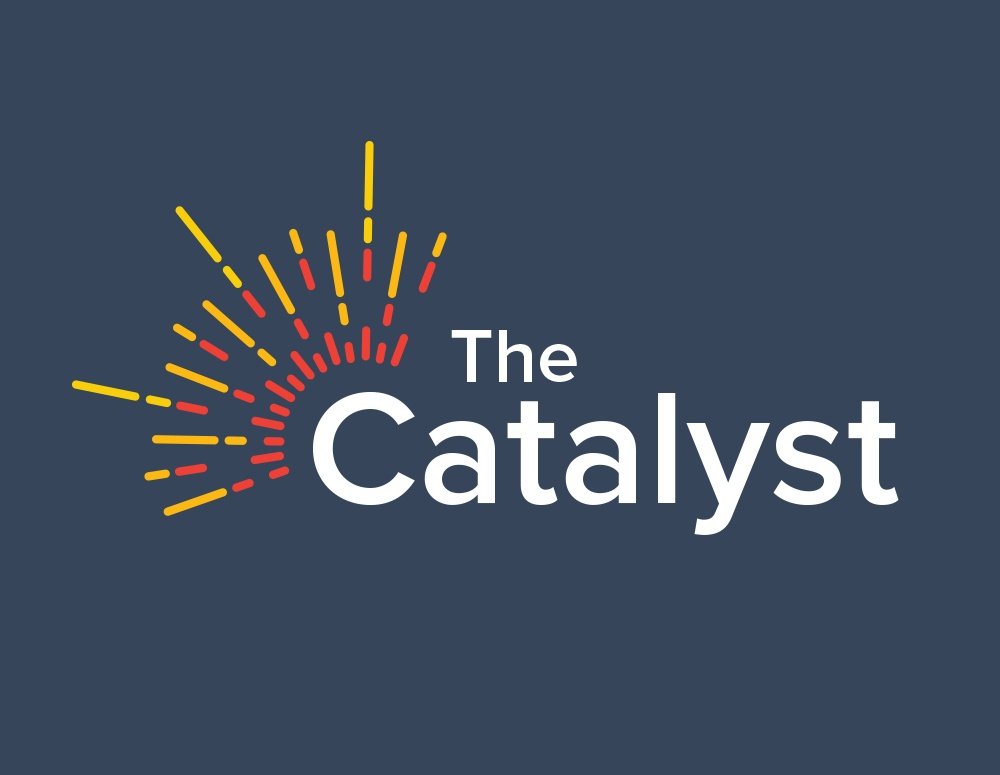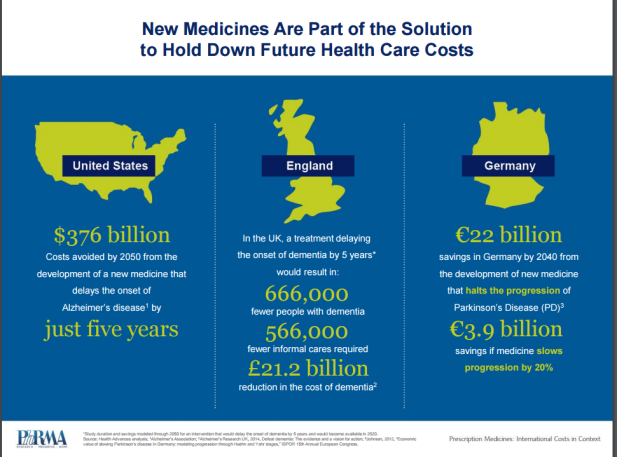New medicines are part of the solution to hold down future health care costs
Innovative medicines improve patient outcomes and can yield.

New medicines are part of the solution to hold down future health care costs.
Innovative medicines improve patient outcomes and can yield.

New medicines are part of the solution to hold down future health care costs.
Innovative medicines improve patient outcomes and can yield significant economic savings. The introduction of a medicine by 2020 that delays the onset of Alzheimer’s disease by just five years would avert $376 billion in costs from the U.S. health care system, and reduce the total cost of dementia care in the U.K. by more than £21 billion by 2050.

Similarly, the costs associated with the progression of Parkinson’s disease are substantial. Reducing the rate of progression by just 20% is estimated to save the German health care system €3.9 billion over 25 years.
Without development and appropriate use of new medicines, the cost of health care across the globe will prove unsustainable. Medicines save lives and are part of the solution to reducing health care spending, but only if we have policies that support innovation and encourage the development of new treatments.
To learn more check out our International Costs in Context information. Our newly released Costs in Context highlights not only costs and spending data about the United States, but also international data and our policy solutions.